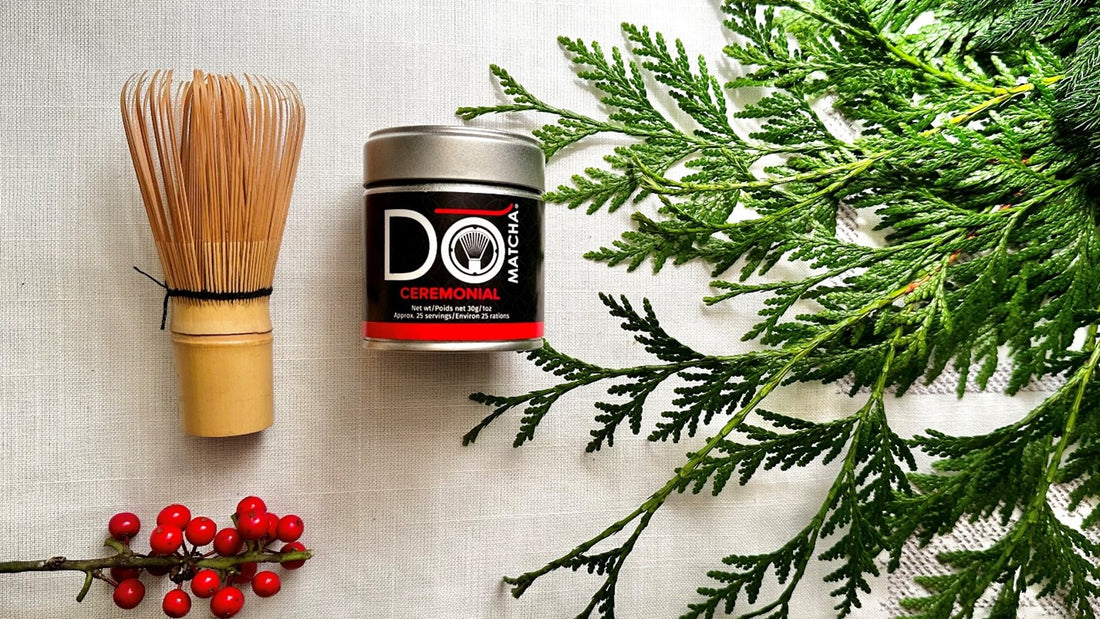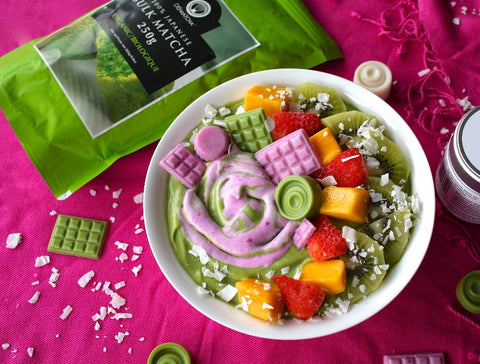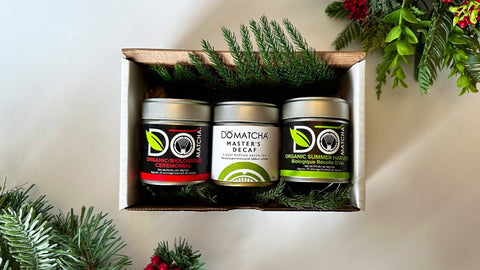
Ceremonial Grade Matcha vs Culinary: Everything you Need to Know for a Superior Experience
Share
Matcha, the vibrant green powdered tea renowned for its unique flavor and health benefits, comes in various grades, each tailored for specific purposes. Among the most discussed are ceremonial grade and culinary grade matcha. While both offer distinct qualities and applications, understanding the differences between the two is essential for achieving the best possible matcha experience. Let's delve into the nuances of ceremonial grade matcha versus culinary grade, and how each can elevate your tea journey.
The Most Prized: Ceremonial Grade Matcha

Ceremonial grade matcha is endowed with the reputation of being the highest quality matcha tea. Technically, the name was given to honor the traditional tea ceremony, which matcha plays a critical role in. Matcha used for tea ceremonies are known to be as prized and sacred as the ritual itself. Hence, in 2007, when DōMatcha® was launched, founder John Harrison and the Japanese team brainstormed and came up with the term “Ceremonial matcha.” This term has become somewhat of a standard globally, to describe matcha made from first flush, tencha leaves. The youngest, uppermost leaves are the tenderest and produces the sweetest aroma. These leaves are shade-grown for several weeks before harvest, enhancing their chlorophyll and amino acid content, resulting in a vibrant green color and rich, umami flavor profile. Then, carefully stone-ground into a fine powder, preserving their delicate aroma and nutritional integrity. Due to its more labor intensive and exclusive process, ceremonial grade matcha is generally more expensive than other matcha grades.
This grade of matcha is revered for its smooth texture, sweet aroma, and nuanced taste, making it ideal for traditional tea ceremonies where purity and elegance are paramount. DōMatcha takes it a step further and offers matcha teas that are blended by a 16th generation Tea Master to ensure consistency and ideal, balanced flavor. Ceremonial grade matcha is best enjoyed whisked with hot water, producing a frothy, invigorating beverage that captivates the senses and nourishes the body.
One thing to note is that there is no official regulation body that governs whether matcha can be named ceremonial or not. The best way to tell the quality of matcha is through the senses. Ceremonial grade matcha should be light green in color and produce no harsh bitterness on the palette. Its often characterized by a sweet and clean aroma and flavor. The higher quality ceremonial grade matcha is, the better suited it is for koicha preparation, which uses more matcha powder and less water.
Versatility is King: Culinary Grade Matcha

Culinary grade matcha, on the other hand, is more versatile and robust in flavor, making it suitable for use in cooking, baking, and blending. While still derived from high-quality tea leaves, culinary grade matcha is typically harvested later in the season and may include leaves lower down on the stem. As a result, it may exhibit a slightly bitter taste and a coarser texture compared to ceremonial grade matcha.
Despite its stronger flavor profile, culinary grade matcha retains many of the health benefits associated with matcha, including antioxidants, vitamins, and minerals. Its bold flavor makes it well-suited for adding a distinctive green tea essence to a wide range of recipes, from smoothies and desserts to savory dishes and sauces.
Culinary grade, or bulk matcha is typically better value if you use matcha in larger quantities. At a lower price point, it’s a great way to add antioxidants and a beautiful color into your diet.
Choosing the Right Matcha for You

When selecting matcha, consider your intended use and flavor preferences. If you value purity, elegance, and a refined taste experience, opt for ceremonial grade matcha for traditional tea ceremonies or everyday sipping. If you enjoy experimenting in the kitchen and want to incorporate matcha into your culinary creations, culinary grade matcha offers versatility and depth of flavor.
Ultimately, whether you choose ceremonial grade or culinary grade matcha, investing in high-quality, authentic products is key to unlocking the full potential of this beloved Japanese treasure. By understanding the distinctions between these grades and their respective applications, you can embark on a matcha journey that delights the senses and nourishes the soul.